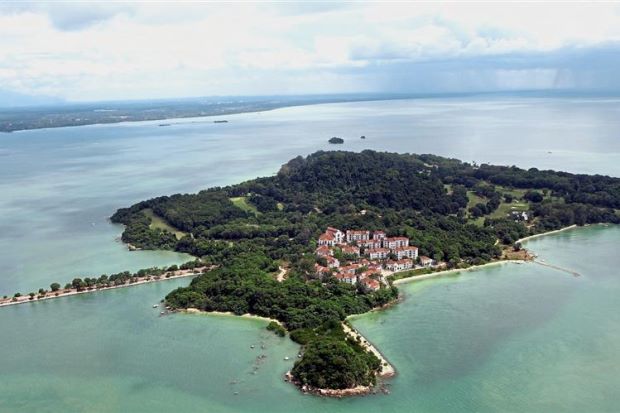Melaka Religious Dept To Set Rules Banning “Immodest Clothing” Such As Bikinis On Pulau Besar Island
 Thirsty for JUICE content? Quench your cravings on our Instagram, TikTok and WhatsApp
Thirsty for JUICE content? Quench your cravings on our Instagram, TikTok and WhatsApp

The Islamic authorities in Melaka want measures to be initiated against those who, in their judgement, were dressed inappropriately at Pulau Besar’s beachfront, tarnishing the island’s reputation.
This came after a three-minute video depicting beachgoers on the island frolicking in bikinis that went viral on social media on December 25.

The director of Melaka’s Islamic Religious Affairs Department (JAIM), Che Sukri Che Mat, announced that the organisation now intends to put up signs warning tourists to dress modestly and refrain from engaging in activities that Muslims deem inappropriate.
“Wearing certain clothing (such as bikinis) is solely appropriate for the bedroom, not to be flaunted to the Pulau Besar community. They shouldn’t treat this lightly,” he said, according to Harian Metro.
“This is the first and final warning. We won’t make any exceptions so don’t repeat it,” he added.
Sukri stated that the police, local government, and state development authorities will convene to discuss the situation.
He said they will talk about possible measures to be taken against visitors who desecrated Pulau Besar, a sacred island with a long history dating back to the Islamic civilisation.

According to FMT, Pulau Besar is well recognised for its historic burials, tombs, and mausoleums of important Islamic preachers in addition to beach resorts and small outlying islands.
In line with that, assemblyman Low Chee Leong of Kota Laksamana requested that the Melaka Tourism Development Board implement new rules for swimming gear in the region. Out of respect for the island’s history and culture, Low said it was logical that bikinis were not permitted to be worn on Pulau Besar.
He also argued that visitors shouldn’t wear bikinis on Pulau Besar beaches due to the island’s history as well as local customs and culture.


 Get Audio+
Get Audio+ Hot FM
Hot FM Kool 101
Kool 101 Eight FM
Eight FM Fly FM
Fly FM Molek FM
Molek FM

